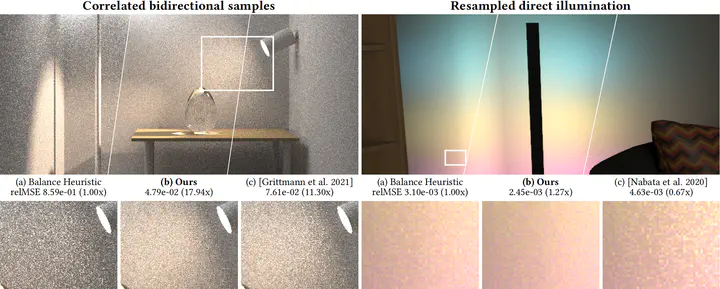Correct your balance heuristic: Optimizing balance-style multiple importance sampling weights

Abstract
Multiple importance sampling (MIS) is a vital component of most rendering algorithms. MIS computes a weighted sum of samples from many different techniques to achieve generalization, that is, to handle a wide range of scene types and lighting effects. A key factor to the performance of MIS is the choice of weighting function. The go-to default – the balance heuristic – performs well in many cases, but prior work has shown that it can yield unsatisfactory results. A number of challenges cause this suboptimal performance, including low-variance techniques, sample correlation, and unknown sampling densities. Prior work has suggested improvements for some of these problems, but a general optimal solution has yet to be found. We propose a general and practical weight correction scheme: We optimize, on-the-fly, a set of correction factors that are multiplied into any baseline MIS heuristic (e.g., balance or power). We demonstrate that this approach yields consistently better equal-time performance on two rendering applications: bidirectional algorithms and resampled importance sampling for direct illumination.